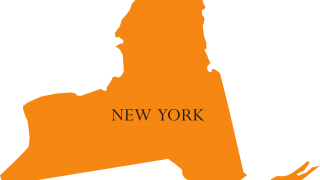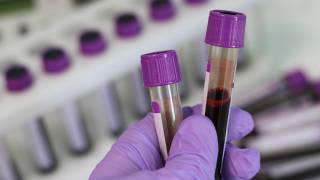Women’s Cancer Prevention Act Requires HPV Vaccination Before School Enrollment

While some parents support the use of vaccines to prevent cancer, others have objections.
Additionally, many people believe the government shouldn't require additional vaccinations for their children.
Most people do agree that state-based policies to mandate human papillomavirus (HPV) vaccination are politically challenging and have received extensive debate.
While HPV infection cannot be cured, it can be prevented by HPV vaccines.
In Florida, State Representative Amy Mercado and her fellow lawmakers filed HB 1343 on January 12, 2018, which revises school immunization requirements to include vaccines for HPV.
Representative Mercado, who represents parts of Orange County in Florida, said “It's important to protect children from cancer as early as possible,” reported ABC9. If passed, the HB 1343 would take effect July 1, 2018.
But, the Florida health department says people can receive an exemption for medical or religious reasons.
Currently, only Virginia, Rhode Island, and Washington, DC have enacted legislation requiring mandates for adolescents to begin the vaccine series for school enrollment.
Rhode Island is the only state with mandatory vaccination of both young females and males, with both Virginia and Washington only covering females.
Initially, Texas passed a bill requiring the HPV vaccine, but this legislation was later repealed.
HPV vaccines have been touted as a tremendous public health achievement for the potential prevention of cervical, vulvar, vaginal, anal, penile, and oropharyngeal cancer.
The first HPV vaccine was initially approved by the US Food and Drug Administration (FDA) in 2006, and the newest nonavalent vaccine was approved in 2015.
The Advisory Committee on Immunization Practices (ACIP) added the HPV vaccination to the immunization schedule for adolescent girls in 2006 and included males in 2010.
Even so, the uptake and completion of the HPV vaccination series has dramatically lagged behind anticipated immunization coverage.
According to the Centers for Disease Control and Prevention (CDC), HPV infects approximately 20 million people in the United States with 6.2 million new cases each year.
There are more than 30 strains of HPV that affect at least half of sexually active people in their lifetime. Most strains of HPV do not produce any symptoms and disappear on their own.
During 2016, the CDC approved a two-dose schedule for adolescents under age 15 instead of the traditional three-dose schedule. Teens starting at age 15 or later still need three doses.
The Gardasil 9 vaccine immunizes against nine genotypes of HPV known to cause cervical cancer, as well as vulvar, vaginal, and anal cancers and genital warts caused by HPV.
The CDC Vaccine Price List provides the private sector vaccine prices for general information. HPV vaccine discounts can be found here.
Most pharmacies offer vaccination services, including HPV.
Vaccines, like any medicine, can have side effects, says the CDC. You are encouraged to report negative side effects of vaccines to the FDA or CDC.
http://www.ncsl.org/research/health/hpv-vaccine-state-legislation-and-st...
https://www.dovepress.com/legislative-activity-related-to-the-human-papi...
http://www.myfloridahouse.gov/Sections/Bills/billsdetail.aspx?BillId=62653
Our Trust Standards: Medical Advisory Committee

























